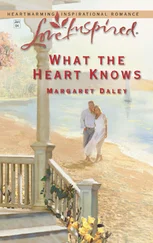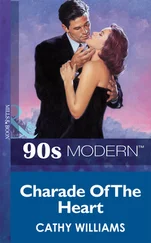William White - In the Heart of a Fool
Здесь есть возможность читать онлайн «William White - In the Heart of a Fool» — ознакомительный отрывок электронной книги совершенно бесплатно, а после прочтения отрывка купить полную версию. В некоторых случаях можно слушать аудио, скачать через торрент в формате fb2 и присутствует краткое содержание. Жанр: foreign_sf, foreign_antique, foreign_prose, на английском языке. Описание произведения, (предисловие) а так же отзывы посетителей доступны на портале библиотеки ЛибКат.
- Название:In the Heart of a Fool
- Автор:
- Жанр:
- Год:неизвестен
- ISBN:нет данных
- Рейтинг книги:3 / 5. Голосов: 1
-
Избранное:Добавить в избранное
- Отзывы:
-
Ваша оценка:
- 60
- 1
- 2
- 3
- 4
- 5
In the Heart of a Fool: краткое содержание, описание и аннотация
Предлагаем к чтению аннотацию, описание, краткое содержание или предисловие (зависит от того, что написал сам автор книги «In the Heart of a Fool»). Если вы не нашли необходимую информацию о книге — напишите в комментариях, мы постараемся отыскать её.
In the Heart of a Fool — читать онлайн ознакомительный отрывок
Ниже представлен текст книги, разбитый по страницам. Система сохранения места последней прочитанной страницы, позволяет с удобством читать онлайн бесплатно книгу «In the Heart of a Fool», без необходимости каждый раз заново искать на чём Вы остановились. Поставьте закладку, и сможете в любой момент перейти на страницу, на которой закончили чтение.
Интервал:
Закладка:
And here is a mystery: the formation of the social crystal. In that crystal the outer facets and the inner fell into shape–the Nesbits, the Kollanders, the Adamses, the Calvins, the Mortons, and the Sandses, falling into one group; and the Williamses, the Hogans, the Bowmans, the McPhersons, the Dooleys and Casper Herdicker falling into another group. The hill separated from the valley. The separation was not a matter of moral sense; for John Kollander and Dan Sands and Joseph Calvin touched zero in moral intelligence; and it could not have been business sense, for Captain Morton for all his dreams was a child with a dollar, and Dr. Nesbit never was out of debt a day in his life; without his salary from tax-payers John Kollander would have been a charge on the county. In the matter of industry Daniel Sands was a marvel, but Jamie McPherson toiling all day used to come home and start up his well drill and its clatter could be heard far into the night, and often he started it hours before dawn. Nor could aspirations and visions have furnished the line of cleavage; for no one could have hopes so high for Harvey as Jamie, who sank his drill far into the earth, put his whole life, every penny of his earnings and all his strength into the dream that some day he would bring coal or oil or gas to Harvey and make it a great city. Yet when he found the precious vein, thick and rich and easy to mine, Daniel Sands and Joseph Calvin took his claim from him by chicanery as easily as they would have robbed a blind man of a penny, and Jamie went to work in the mines for Daniel Sands grumbling but faithful. Williams and Dooley and Hogan and Herdicker bent at their daily tasks in those first years, each feeling that the next day or the next month or at most the next year his everlasting fortune would be made. And Dick Bowman, cohort of Dr. Nesbit, many a time and oft would wash up, put on a clean suit, and go out and round up the voters in the Valley for the Doctor’s cause and scorn his task with a hissing; for Dick read Karl Marx and dreamed of the day of the revolution. Yet he dwelled with the sons of Essua, who as they toiled murmured about their stolen birthright. When a decade had passed in Harvey the social crystal was firm; the hill and the valley were cast into the solid rock of things as they are. No one could say why; it was a mystery. It is still a mystery. As society forms and reforms, its cleavages follow unknown lines.
It was on a day in June–late in the morning, after Grant and Nathan Perry–son of the stuttering Kyle of that name, had come from a cool hour in the quiet pool down on the Wahoo and little Grant, waiting like a hungry pup for his lunch, that was tempting him in the basket under the typerack, was counting the moments and vaguely speculating as to what minutes were–when he looked up from the floor and saw what seemed to him a visitor from another world. 2 2 Let us read Mary Adams’s clipping and note on the arrival of young Thomas Van Dorn in Harvey. The clipping which is from the local page of the paper reads: “Thomas Van Dorn, son of the late General Nicholas Van Dorn of Schenectady, New York, has located in Harvey for the practice of law and his advertising card appears elsewhere. Mr. Van Dorn is a Yale man and a law graduate of that school as well as an alumnus of the college. As a youth with his father young Thomas stopped in Harvey the day the town was founded. He was a member of the hunting party organized by Wild Bill which under General Van Dorn’s patronage escorted the Russian Grand Duke Alexis over this part of the state after buffalo and wild game. Mr. Thomas Van Dorn remembers the visit well, and old settlers will recall the fact that Daniel Sands that day sold for $100 in gold to the General the plot now known as Van Dorn’s addition to Harvey. Mr. Thomas Van Dorn still has the deed to the plot and will soon put the lots on the market. He was a pleasant caller at the Tribune office this week. Come again, say we.” And upon a paper whereon the clipping is pasted is this in Mary Adams’s hand: “The famous Van Dorn baby! How the years have flown since the scandal of his mother’s elopement and his father’s duel with Sir Charles shook two continents. What an old rake the General was. And the boy’s mother after two other marriages and a sad period on the variety stage died alone in penury! And Amos says that the General was so insolent to his men in the war, that he dared not go into action with them for fear they would shoot him in the back. Yet the boy is as lovely and gentle a creature as one could ask to meet. This is as it should be.”
The creature was talking to Amos Adams sitting at the desk; and Amos was more or less impressed with the visitor’s splendor. He wore exceedingly tight trousers–checked trousers, and a coat cut grandly and extravagantly in its fullness, a high wing collar, and a soup dish hat. He was such a figure as the comic papers of the day were featuring as the exquisite young man of the period.
Youth was in his countenance and lighted his black eyes. His oval, finely featured face, his blemishless olive skin, his strong jaw and his high, beautiful forehead, over which a black wing of hair hung carelessly, gave him a distinction that brought even the child’s eyes to him. He was smiling pleasantly as he said,
“I’m Thomas Van Dorn–Mr. Adams, I believe?” he asked, and added as he fastened his fresh young eyes upon the editor’s, “you scarcely will remember me–but you doubtless remember the day when father’s hunting party passed through town? Well–I’ve come to grow up with the country.”
The editor rose, roughed his short, sandy beard and greeted the youth pleasantly. “Mr. Daniel Sands sent me to you, Mr. Adams–to print a professional card in your paper,” said the young man. He pronounced them “cahd” and “papuh” and smiled brightly as his quick eyes told him that the editor was conscious of his eastern accent. While they were talking business, locating the position of the card in the newspaper, the editor noticed that the young man’s eyes kept wandering to Mary Adams, typesetting across the room. She was a comely woman just in her thirties and Amos Adams finally introduced her. When he went out the Adamses talked him over and agreed that he was an addition to the town.
Within a month he had formed a partnership with Joseph Calvin, the town’s eldest lawyer; and young Henry Fenn, who had been trying for a year to buy a partnership with Calvin, was left to go it alone. So Henry Fenn contented himself with forming a social partnership with his young rival. And when the respectable Joseph Calvin was at home or considering the affairs of the Methodist Sunday School of which he was superintendent, young Mr. Fenn and young Mr. Van Dorn were rambling at large over the town and the adjacent prairie, seeking such diversion as young men in their exceedingly early twenties delight in: Mr. Riley’s saloon, the waters of the Wahoo, by moonlight, the melliferous strains of “Larboard watch,” the shot gun, the quail and the prairie chicken, the quarterhorse, and the jackpot, the cocktail, the Indian pony, the election, the footrace, the baseball team, the Sunday School picnic, the Fourth of July celebration, the dining room girls at the Palace Hotel, the cross country circus and the trial of the occasional line fence murder case–all were divertissements that engaged their passing young attention.
If ever the world was an oyster for a youth the world of Harvey and the fullness thereof was an oyster to Thomas Van Dorn. He had all that the crude western community cherished: the prestige of money, family, education, and that indefinable grace and courtesy of body and soul that we call charm. And Harvey people seemed to be made for him. He liked their candor, their strength, their crass materialism, their bray and bluster, their vain protests of democracy and their unconscious regard for his caste and culture. So whatever there was of egoism in his nature grew unchecked by Harvey. He was the young lord of the manor. However Harvey might hoot at his hat and gibe at his elided R’s and mock his rather elaborate manners behind his back; nevertheless he had his way with the town and he knew that he was the master. While those about him worked and worried Tom Van Dorn had but to rub lightly his lamp and the slave appeared and served him. Naturally a young man of his conspicuous talents in his exceedingly early twenties who has the vast misfortune to have a lamp of Aladdin to rub, asks genii first of all for girls and girls and more girls. Then incidentally he asks for business and perhaps for politics and may be as an afterthought and for his own comfort he may pray for the good will of his fellows. Tom Van Dorn became known in the vernacular as a “ladies man.” It did not hurt his reputation as a lawyer, for he was young and youth is supposed to have its follies so long as its follies are mere follies. No one in that day hinted that Tom Van Dorn was anything more dangerous than a butterfly. So he flitted from girl to girl, from love affair to love affair, from heart to heart in his gay clothes with his gay manners and his merry face. And men smiled and women and girls whispered and boys hooted and all the world gave the young lord his way. But when he included the dining room girls at the Palace Hotel in his list of conquests, Dr. Nesbit began squinting seriously at the youth and, late at night coming from his professional visits, when the doctor passed the young fellow returning from some humble home down near the river, the Doctor would pipe out in the night, “Tut, tut, Tom–this is no place for you.”
Читать дальшеИнтервал:
Закладка:
Похожие книги на «In the Heart of a Fool»
Представляем Вашему вниманию похожие книги на «In the Heart of a Fool» списком для выбора. Мы отобрали схожую по названию и смыслу литературу в надежде предоставить читателям больше вариантов отыскать новые, интересные, ещё непрочитанные произведения.
Обсуждение, отзывы о книге «In the Heart of a Fool» и просто собственные мнения читателей. Оставьте ваши комментарии, напишите, что Вы думаете о произведении, его смысле или главных героях. Укажите что конкретно понравилось, а что нет, и почему Вы так считаете.












